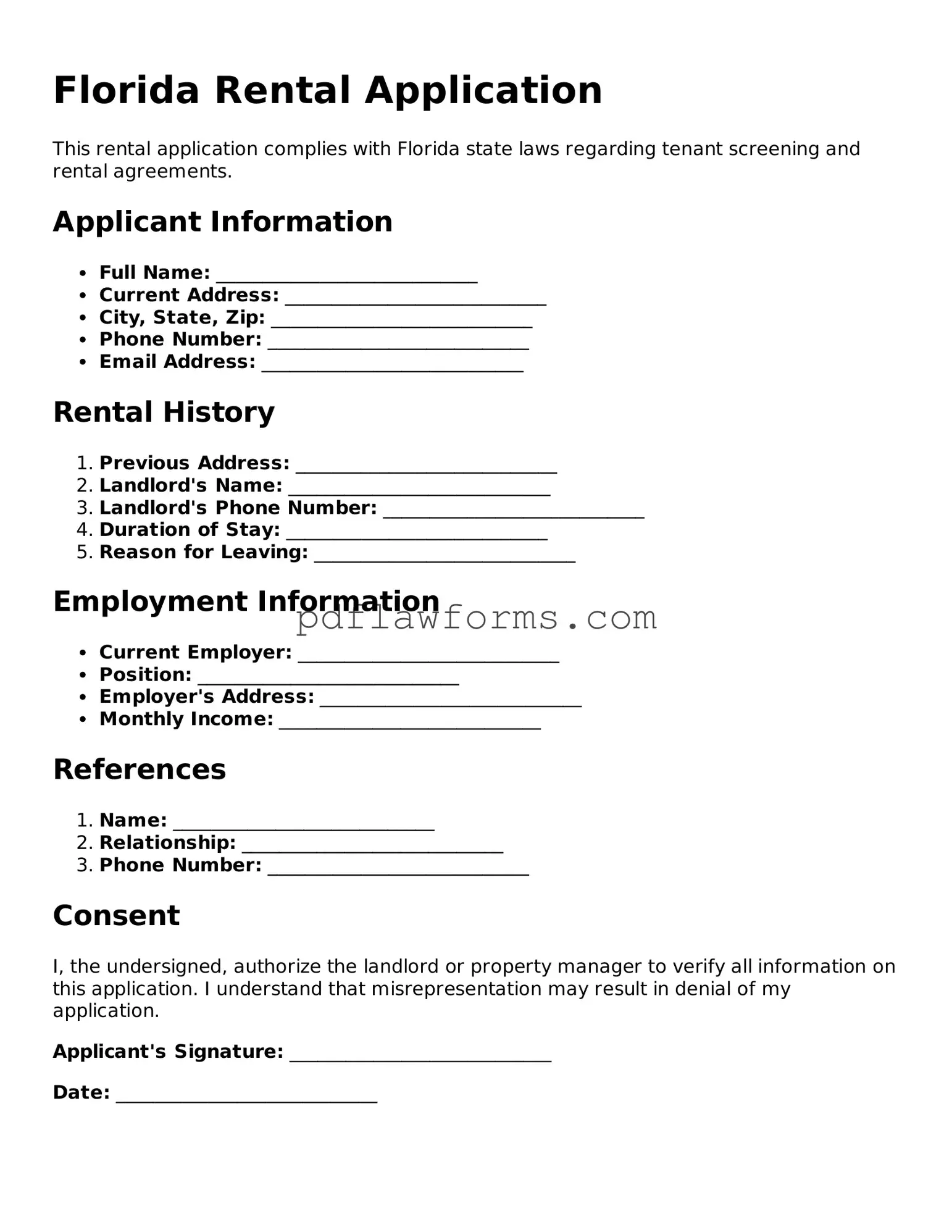Rental Application Form for the State of Florida
The Florida Rental Application form is a document used by landlords to collect essential information from potential tenants. This form helps property owners assess applicants' suitability for renting their properties by gathering details such as employment history, creditworthiness, and rental history. If you're ready to find your next home, fill out the form by clicking the button below.
Make My Document Online

Rental Application Form for the State of Florida
Make My Document Online
You’re halfway through — finish the form
Edit and complete Rental Application online, then download your file.
Make My Document Online
or
⇩ Rental Application PDF
